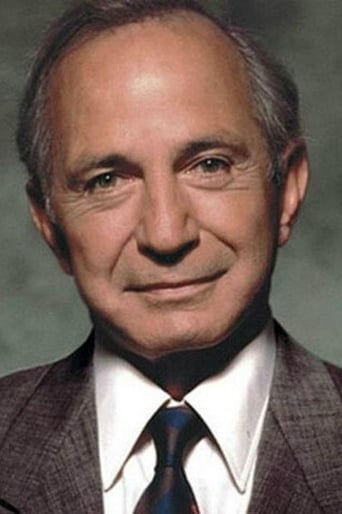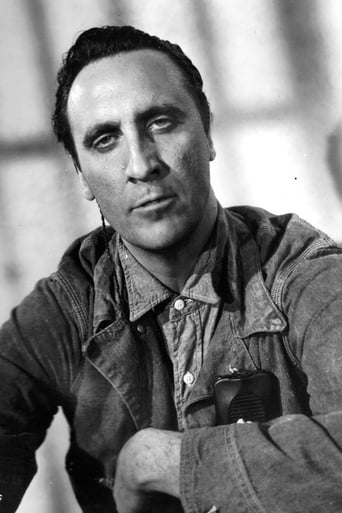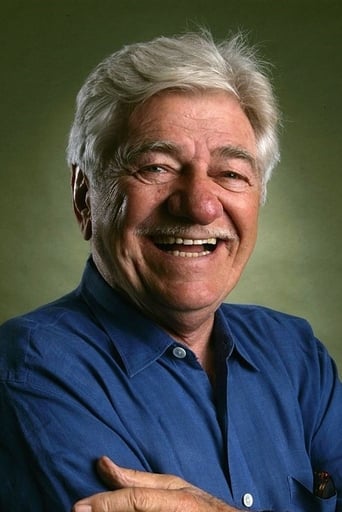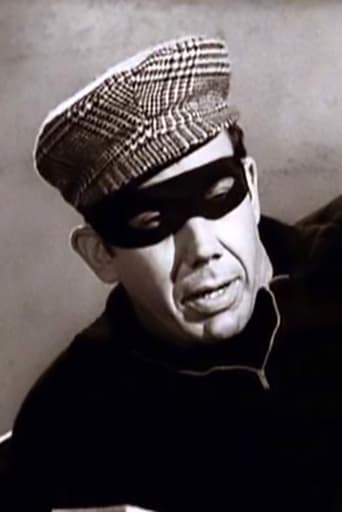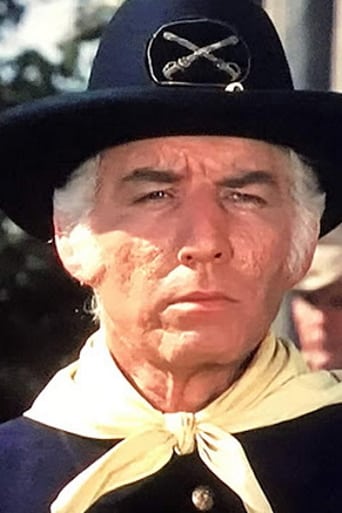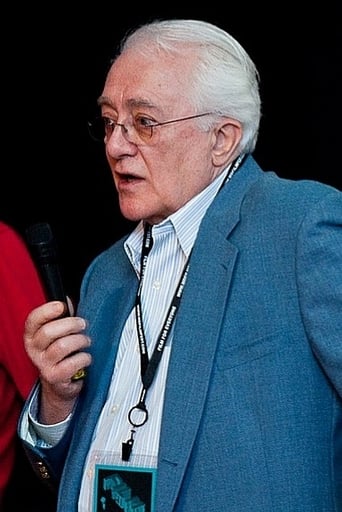Noutions
Good movie, but best of all time? Hardly . . .
Matialth
Good concept, poorly executed.
BelSports
This is a coming of age storyline that you've seen in one form or another for decades. It takes a truly unique voice to make yet another one worth watching.
Kaydan Christian
A terrific literary drama and character piece that shows how the process of creating art can be seen differently by those doing it and those looking at it from the outside.
Ore-Sama
"The Killing of a Chinese Bookie", the original 1976 cut, was the first movie by Cassavette I had ever seen. I went in, only knowing the basic premise and that it was not a usual picture, and I was blown away. It completely changed my perception of how a film could be written, and opened me not just to his other films, but many other kinds of films in general. Now some time and many films later, and my opinion has changed very little on this particular piece."The Killing of a Chinese Bookie" revolves around strip club owner Cosmo Vitelli, a man who carries himself with swagger and dignity, who loves his joint, the Crazy Horse West, who loves the workers within it, but who is a man of great vice. After paying off one gambling debt, he falls into another, but this time from mobsters who offer him an alternative to paying: to murder a Chinese bookie.The experience of this film will differ depending on the version. Many prefer the 1978 recut, which is a very tight film, and it works as a moody neo noir picture. It has scenes not in the longer cut, but overall focuses entirely on plot.However my preference is easily for the original version. The leisurely, prolonged pace helps create a unique feel to the film, and also creates more of a balance. Whereas the 1978 film is dark, almost nihilistic, the 1976 version has much more heart to it. We see much more of the relationship between Vitelli and not just his workers, but the club itself. Thus one sees the true struggle, in a man being torn between committing a heinous act, or losing the thing he loves most. Add to that, the pace also creates more of a build up to the fated crossroad where Cosmo will either kill the bookie, get killed, or back out, resulting in that fateful scene meaning so much more. Cassavette made this film as an allegory to his struggles as an independent film maker, and in the 1976 cut this is much more apparent. Even apart from the thematic and narrative, though, the 1976 cut feels unlike almost any other film. Beyond the merits of it's story, "The Killing of a Chinese Bookie" is an experience, akin to the films of Andrei Tarkovsky in giving the sense that when the movie's done, one has not simply seen a great movie but been on a journey (while the 1978 version feels almost rushed in comparison)On a technical level, the film is low budget and it shows, but like films such as "Breathless" and "Mean Streets", the low budget, raw feel enhances the mood, especially of the night scene. Two pivotal scenes towards the end that take place at night posses a near unrivaled mood, and this is in great part thanks to hand held, almost documentary style that the movie is made in. The night club scenes are also a visual highlight, filmed in colored gels that make the club feel like a world all it's own.and of course like most Cassavette films, the dialogue has a very improvised feel (many to this day believe his films were improvised), which means people talk over one another, topics can change at any time, and there's no cinematic manipulation to enhance the impact of certain lines. While there's far less of the rapid and sudden emotional twists and turns within a scene that are a mark of most of his films, there's still plenty for fans of his to be familiar.If you haven't guessed by now, this is NOT a typical mobster film. It's nothing like "The Godfather" or the gangster films of Scorcesse (and no, I'm certainly not trying to put down those great films), or like any other. It's a very slow, methodical, non stylized picture that to this day will baffle the unprepared viewer. If you watch this and aren't familiar with Casavette's other films, know that it's not going to be quite like anything else you've seen.You can get this film either through the five DVD John Cassavette collection or the Criterion DVD. I can't vouch for the former, but the criterion has both the 1976 and 1978 cuts. While I by far prefer the 1976 version, you may as well get both and come to your own conclusion.
David Jones
"The Killing is an innovative thriller trapped inside a bloated self-indulgent work of improvisational theater." I don't have much to add to this comment except to say that there is actually a pretty good story in here. It's well developed and escalates nicely. The protagonist, well played by Ben Gazarra, is truly an interesting (if not very likable) character.Unfortunately, the character and story are weighed down by interminable scenes from the tawdry shows-within-a-show that the main character produces in his strip club. These shows are just bizarre and amateurish. A few glimpses of them would have given us all we need to know about Cosmo Vitelli and his world, but instead we're subjected to these scenes over and over, in stultifying detail. It's just. . . boring.Another reviewer here has complained that Vitelli is wounded in a way that should be fatal, and yet he finishes out the movie as if he doesn't have a care in the world. That reviewer is right. It's just ridiculous and unbelievable.And then there's the complaint that killing the Chinese Bookie of the title--getting past the dogs and the guards--is way too easy for Vitelli. Also a legitimate knock against the movie.No one has mentioned that there's also some pretty bad cinematography on display here--scenes in which the camera follows so poorly during closeups that actors' eyes drift out of the frame.There's an interesting movie in here, but it's so amateurish and self-indulgent in places that that movie is suffocated.
mdonath
First off, I saw the longer, 1976 version, which clearly has some pacing problems (how much mediocre burlesque to we want to see?), but I'm not knocking it too much for that. It does has some brilliant moments, including the title scene; the night out with the girls, where Garraza incurs his debt; and Gazzara's escape from the hit man in the deserted building. But it also has little plot and some confusing editing.I'd give it a 5 for boring me in parts if it were not for the mind- blowing realism of the (mostly scripted) dialogue and the fascinating performance of Gazzara. Gazzara creates a truly unforgettable character with Cosmo Vittelli -- not particularly one that you like or can relate to, but certainly one that seems genuine and nuanced. I have bit of a spoiler coming here, so fair warning. One of the most bizarre parts of the film has it cutting away just when the mob hit man is about to track down Gazzara to rub him out in order to cover the mob's involvement with the Chinese bookie killing. We see Gazzara later on, so we know he escapes, but Cassavetes jumps us out of one of the most compelling scenes in the movie. Then he ends the film with more mediocre burlesque. This is certain to be one of the scenes that splits the viewing public. I'm sure plenty of people will slam the movie just on that, and I'm tempted to do so myself. However, after thinking about it for a bit, it makes the movie more thought provoking not to see the end of that scene.I'm guessing the 1978 version may be a bit better, since it trims down the nightclub acts. However, I'm not really subtracting too much rating on that account. The nightclub scenes all do seem very realistic, and the fact that Cosmo seems to be so interested in producing such goofy shows does tell us something about his character.
bob_meg
It's been said by many that "Chinese Bookie" is the toughest of any Cassavetes films to digest. There are many slow passages (here I'm referring to the 1976 original version), many moments of embarrassing awkwardness, as you are forced to watch extended sequences filled with players who aren't any more talented or skilled than those at your local summer stock production or junior high school play.Yet, it's very difficult not to be compelled by the story, especially as embodied in the character of Cosmo Vitelli, who Ben Gazzara seems to channel effortlessly, as if he were a second, transparent skin.Cosmo is a fascinating character. He owns a rather ratty strip club/cabaret joint on the Sunset Strip that fronts production values and performers of the qualities mentioned earlier, does middling business, and spends nearly every dime he makes "living the high life" or the "the image" of what someone in his profession should espouse. He swills $100 bottles of Champagne, cruises around town in his plush chauffeured Caddy, an entourage of bimbettes in tow, usually to a dive mob-run poker joint that inevitably lands him in massive debt.He would be an easy character to scorn or mock in another film, but not as Gazzara and Cassavetes portray him. Cosmo is proud of his little world and his accomplishments, and further more, could not give a damn if anyone doesn't approve of them. "You have no style," he sneers at gangster Al Ruban early in the film after the thug condescends to him.As weird as it sounds, you have to respect someone like that, even when he finds himself increasingly trapped by circumstances and succumbing to self-doubt. At the end of the picture he says how important it is to "feel comfortable" with oneself and while we don't believe for a second that Cosmo really feels this way, we know he *wants* to. It's a refreshingly human response in a movie that only contains more of the same.It's not a conventional audience pleaser by any means, but if you've watched other Cassavetes pictures and like his candid stream-of-consciousness style, give the 1978 edited version of "Bookie" a watch before you see the original. Cass not only cut half an hour of footage, he did it with (what else?) incredible style and creativity, really tightening the structure of the film as a whole, considerably juicing its already engaging premise.Quite possibly the most overlooked gem from one of the '60s and '70s most commercially under-appreciated directors.




